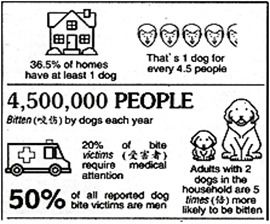
How to Treat Flea Bites on Humans: A Comprehensive Guide
Flea bites can be quite uncomfortable and itchy, especially when they occur in large numbers. These bites are caused by fleas, small, wingless insects that feed on the blood of their hosts. While fleas are commonly associated with pets, they can also bite humans, leading to a range of symptoms. In this article, we will delve into the various aspects of treating flea bites on humans, including symptoms, home remedies, and medical treatments.
Understanding Flea Bites

Flea bites typically appear as small, red bumps on the skin. They can be very itchy and may cause swelling or inflammation. In some cases, flea bites can lead to allergic reactions, which can cause severe itching and skin irritation. It’s important to identify flea bites early to begin treatment promptly.
| Signs of Flea Bites | Description |
|---|---|
| Small, Red Bumps | These are the most common sign of flea bites. They are usually found in clusters and can be very itchy. |
| Swelling and Inflammation | Bites may become swollen and inflamed, especially if they are scratched repeatedly. |
| Scabs | After scratching, the bites may develop scabs, which can take several days to heal. |
| Dark Spots on Sheets | Flea feces can leave dark spots on bedding and furniture, which can be a sign of an infestation. |
Home Remedies for Flea Bites

There are several home remedies that can help alleviate the symptoms of flea bites. These remedies can be used in conjunction with medical treatments to provide relief.
- Cold Compress: Applying a cold compress to the affected area can reduce swelling and numb the itching sensation.
- Aloe Vera: Aloe vera has soothing properties that can help calm the skin and reduce inflammation.
- Tea Tree Oil: Tea tree oil has antiseptic and anti-inflammatory properties that can help alleviate the symptoms of flea bites.
- Baking Soda Paste: Mix baking soda with water to create a paste, then apply it to the bites. This can help reduce itching and inflammation.
- Apple Cider Vinegar: Dilute apple cider vinegar with water and apply it to the bites. This can help soothe the skin and reduce itching.
Medical Treatments for Flea Bites

For severe cases of flea bites, or if you have an allergic reaction, it’s important to seek medical treatment. Here are some common medical treatments for flea bites:
- Antihistamines: These can help reduce itching and inflammation. Over-the-counter antihistamines such as diphenhydramine (Benadryl) can be effective.
- Topical Creams: Creams containing hydrocortisone can help reduce inflammation and itching. These can be purchased over-the-counter or prescribed by a doctor.
- Prescription Medications: In some cases, a doctor may prescribe stronger medications, such as prednisone, to treat severe allergic reactions.
Preventing Flea Bites
Preventing flea bites is the best way to avoid the discomfort and itching they cause. Here are some tips to help you prevent flea bites:
- Keep Your Home Clean: Regularly vacuum your home, especially in areas where pets spend time, to remove fleas and their eggs.
- Wash Bedding and Clothing: Wash your bedding, clothing, and pet beds regularly in hot water to kill fleas and their eggs.
- Use Flea Treatments: Use flea treatments on your pets to prevent them from bringing fleas into your home.
- Inspect Your Pet: Regularly inspect your pet for fleas and signs of an infestation.



